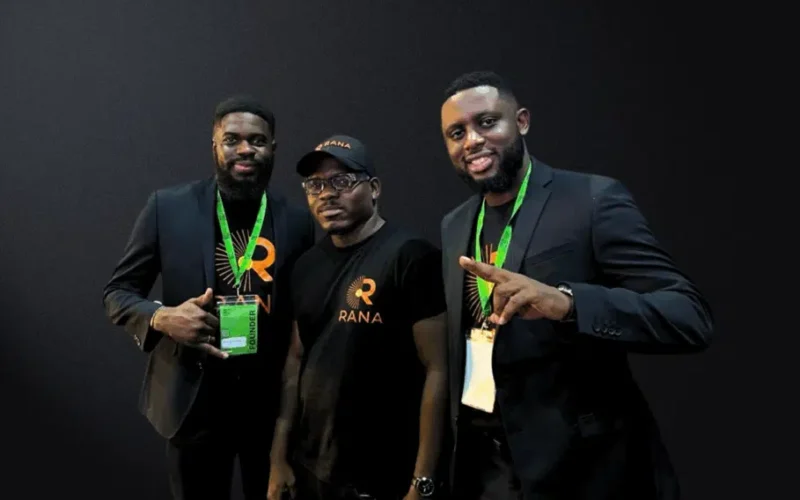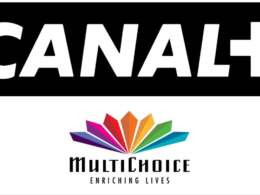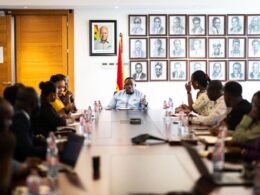Nigerian clean energy startup Rana Energy has secured $3 million in pre-seed funding to accelerate the deployment of its AI-driven Clean Energy-as-a-Service platform across Africa. The funding round represents a strategic blend of venture capital and sustainable finance, positioning the startup to address Africa’s persistent energy access challenges.
Funding Breakdown: Equity Meets Green Debt
The round comprises $500,000 in equity from Techstars, EchoVC Eco, and prominent angel investors including Chinedu Azodoh and Tayo Bamiduro, co-founders of mobility unicorn MAX, alongside a $2.5 million local currency green debt facility arranged by Optimum Global and backed by FSDH Asset Management.
This hybrid financing structure is deliberate. The equity portion funds technology development and team expansion, while the larger debt facility deploys capital directly into solar and battery assets for customers—a model designed for rapid, sustainable scaling in capital-intensive infrastructure.
The Virtual Solar Network: AI Meets Clean Energy
Founded in 2023 by engineers Abraham Mohammed and Mubarak Popoola, Rana Energy is pioneering Africa’s AI-driven digital utility through its Virtual Solar Network (VSN), an intelligent ecosystem that forecasts energy demand, aggregates solar and storage projects into investable portfolios, and remotely manages distributed clean energy assets.
The VSN platform enables businesses and institutions to access clean power through subscription models with no upfront costs—a critical innovation in markets where capital constraints often block renewable energy adoption.
Impressive Early Traction
In just 18 months since its 2023 founding, Rana Energy has demonstrated remarkable execution:
- Deployed 1.3 MW of solar and battery systems across Nigeria
- Achieved 99.9% uptime
- Reduced diesel dependence by over 80%
- Slashed energy costs by up to 30% for clients
Among Rana’s flagship projects is a 5 MW Energy Security and Sustainability Program at the National Defence College (NDC) in Abuja, which includes Nigeria’s largest solar carport installation.
Real-World Impact: Client Success Stories
The platform’s impact extends beyond metrics. Dr. Boroji Osindero, Medical Director at Wellness Centre in Lagos, shared: “Before Rana, we were spending over ₦2.5 million monthly on diesel at our Physiotherapy clinic. Now, we have 24/7 clean power at 25% less cost, and our patients know they can count on us during emergencies”.
This represents a 25% cost reduction while eliminating power interruptions—a game-changer for healthcare facilities where reliability can mean the difference between life and death.
Addressing Africa’s $35 Billion Energy Gap
The market opportunity is staggering. With 600 million Africans still lacking reliable access to electricity and over $35 billion spent annually on backup diesel generators, Rana Energy is tackling both an environmental and economic crisis.
Diesel generators are not only polluting—they’re extraordinarily expensive to operate, especially given currency volatility and fuel price fluctuations across African markets.
“We have shown that sub-1 MW clean energy systems, when aggregated, can attract institutional capital, deliver strong returns, and drive measurable impact,” said Abraham Mohammed, co-founder and CEO of Rana Energy. “By blending venture equity with structured green debt financing, we have built a replicable model for Africa’s energy transition.”
Aggressive Expansion Plans
Rana Energy plans to expand its VSN capacity to 10 MW within the next year, with initial growth targets in Ghana and Zambia. The target client base is diverse, spanning:
- Battery swap stations for electric vehicles
- Hospitals and healthcare facilities
- Supermarkets and retail chains
- Industrial manufacturing facilities
The planned 10 MW expansion is expected to avoid over 450,000 kg of CO₂ emissions annually, demonstrating measurable climate impact alongside commercial viability.
The startup’s long-term vision is ambitious: deploy 100 MW of solar infrastructure across Africa by 2028, displacing diesel generators and supporting the continent’s renewable energy transition.
Technology Meets Speed: The Execution Advantage
“Execution is everything in this market, and Rana delivers at lightning pace,” said Mubarak Popoola, co-founder and CTO of Rana Energy. “From federal institutions to frontline businesses, we are proving that reliable clean energy is not just possible, it is inevitable. Rana’s AI-powered ecosystem is built to scale intelligently, because energy should be a right, not a luxury.”
The startup’s velocity is noteworthy in a sector often plagued by slow deployment cycles and regulatory hurdles.
Investor Confidence in Climate Infrastructure
“Rana represents everything we look for in climate infrastructure: exceptional founders solving a massive problem with breakthrough technology and innovative financing,” said Eghosa Omoigui, managing partner at EchoVC Eco. “Their AI-powered approach doesn’t just replace diesel with a clean substitute, it creates a neo-energy paradigm that will unlock billions in economic growth.”
Rana’s innovative model has earned it a spot in the Google for Startups Accelerator Africa Class 8, highlighting its growing influence in the region’s clean-tech ecosystem.
Market Challenges and Competitive Positioning
While Rana’s traction is impressive, the startup faces headwinds common to African energy infrastructure:
- Currency volatility affecting equipment imports and revenue stability
- High import tariffs on solar components, increasing capital expenditure
- Battery supply constraints amid global demand for energy storage
- Regulatory complexity across multiple African markets
However, the startup’s hybrid financing structure, combining equity and green debt, alongside its AI capabilities, gives it a competitive edge in a challenging market.
The Broader Context: Africa’s Energy Transition
Rana Energy’s funding comes amid growing investor interest in African climate tech. The continent faces a paradox: abundant renewable resources (solar, wind, hydro) coupled with some of the world’s lowest energy access rates.
Traditional grid expansion has proven too slow and capital-intensive for many African markets. Distributed energy solutions like Rana’s VSN offer an alternative pathway—one that’s faster to deploy, more resilient, and increasingly cost-competitive with diesel.
The company is registered in Delaware but headquartered in Lagos, a structure common among African startups seeking to attract international capital while operating locally.
What’s Next for Rana Energy
The immediate focus is clear: scale from 1.3 MW to 10 MW within 12 months while expanding into Ghana and Zambia. Success in these markets could validate the model for broader continental expansion.
The company must also continue refining its AI algorithms for energy forecasting and asset management—capabilities that differentiate it from traditional solar installers and could prove crucial for maintaining competitive advantage.
With institutional capital now backing its model, Rana Energy has an opportunity to prove that aggregated, AI-managed clean energy infrastructure can deliver both financial returns and climate impact at scale across Africa.












